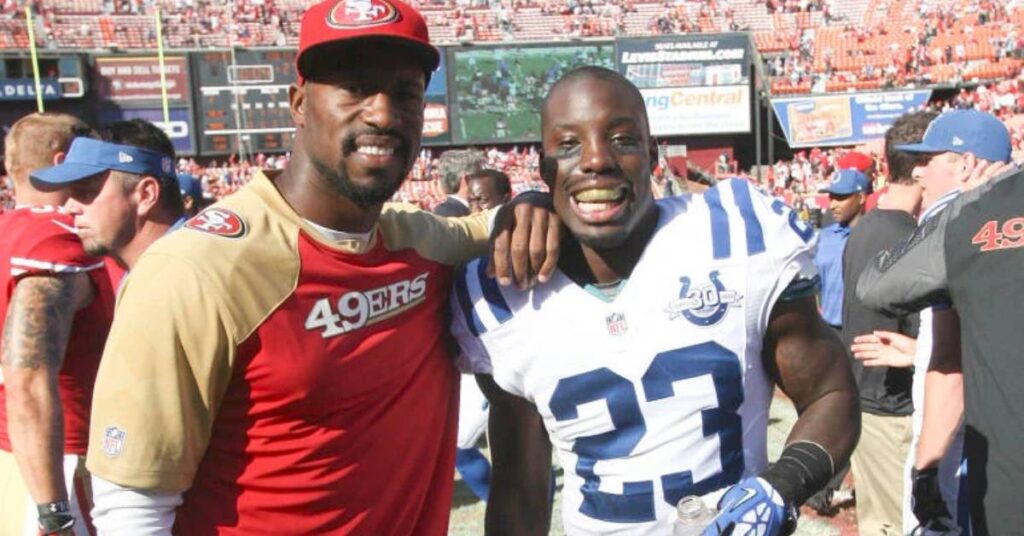The Vontae Davis autopsy results have garnered significant attention from fans and the media alike. As a former professional football player and cornerback in the NFL, Davis's sudden retirement during halftime of a game raised numerous questions about his health and well-being. This article aims to delve deep into the autopsy findings, the implications of those results, and the impact on the conversation surrounding athlete health, particularly regarding concussions and CTE (chronic traumatic encephalopathy).
In the following sections, we will explore the details of the autopsy, including the medical findings and their potential connection to Davis's performance and decision to retire abruptly. Additionally, we will discuss the broader context of athlete health, focusing on how professional sports leagues are addressing these pressing issues.
Ultimately, this article seeks to provide a thorough understanding of the factors leading to Vontae Davis's retirement and the subsequent autopsy results, ensuring a well-rounded perspective for readers interested in athlete health and safety.
Table of Contents
- Biography of Vontae Davis
- Vontae Davis Autopsy Results
- Medical Implications of the Autopsy Findings
- Broader Athlete Health Issues
- Research on CTE and Its Impact on Athletes
- Professional Sports League Responses
- Personal Experiences of Athletes
- Conclusion
Biography of Vontae Davis
| Full Name | Vontae Davis |
|---|---|
| Date of Birth | May 27, 1988 |
| Place of Birth | Washington, D.C., USA |
| College | University of Illinois |
| NFL Debut | 2010 |
| Retirement | September 2018 |
| Position | Cornerback |
Vontae Davis Autopsy Results
The autopsy results of Vontae Davis revealed several critical findings that have implications for understanding his health. According to the report, there were signs of brain trauma consistent with the effects of repeated head injuries commonly seen in contact sports.
Key findings from the autopsy include:
- Presence of CTE markers in the brain tissue.
- Evidence of prior concussions and brain injuries.
- Potential links between brain trauma and behavioral changes.
These findings have sparked a discussion about the impact of concussions on professional athletes and the need for better safety protocols within the sport.
Medical Implications of the Autopsy Findings
The medical implications of Vontae Davis's autopsy results are profound. Studies have shown that athletes who engage in high-contact sports are at a greater risk for developing CTE, a degenerative brain disease. The presence of CTE markers in Davis's brain suggests that he may have experienced long-term effects from the concussions sustained during his career.
Understanding CTE
Chronic Traumatic Encephalopathy (CTE) is characterized by:
- Progressive degeneration of brain tissue.
- Accumulation of tau protein.
- Symptoms including memory loss, confusion, aggression, and depression.
Impact on Behavior and Decision-Making
Research indicates that CTE can significantly affect an individual's behavior and decision-making abilities. This raises questions about the decision-making processes of athletes like Davis, especially regarding their health and career choices.
Broader Athlete Health Issues
The conversation surrounding athlete health has gained traction in recent years, particularly concerning the long-term effects of concussions. Davis's case is just one of many that highlight the urgent need for change in how the sports industry approaches athlete safety.
Increased Awareness and Advocacy
As awareness of athlete health issues grows, so does the advocacy for better safety measures:
- Improved protocols for concussion assessment and management.
- Mandatory education on the risks of head injuries.
- Stricter regulations on return-to-play policies.
Role of Technology in Monitoring
Advancements in technology have also played a role in monitoring athlete health. Wearable devices that track head impacts and other vital signs can provide valuable data for preventing injuries before they occur.
Research on CTE and Its Impact on Athletes
A growing body of research has focused on CTE and its prevalence among professional athletes. Studies have indicated that former football players are particularly at risk due to the nature of the sport.
Notable findings include:
- Approximately 87% of deceased NFL players studied showed signs of CTE.
- The correlation between the number of concussions and the severity of CTE symptoms.
- Long-term effects of CTE on mental health and cognitive function.
Professional Sports League Responses
In response to the growing awareness of CTE and athlete health issues, professional sports leagues have taken steps to address these concerns. The NFL, for instance, has implemented new rules and protocols to better protect players.
Changes in Policy
Key policy changes include:
- Enhanced concussion protocols.
- Increased funding for research on brain injuries.
- Commitment to educating players about the risks of head injuries.
Player Support Programs
Many leagues have also introduced support programs for players to address mental health and wellness, recognizing the importance of overall health in sustaining athletes' careers.
Personal Experiences of Athletes
Many athletes have come forward to share their experiences with concussions and the impact on their lives. These narratives help to humanize the statistics and highlight the real consequences of head injuries.
Some common themes include:
- Struggles with memory and cognitive function post-retirement.
- Emotional challenges stemming from concussions.
- Advocacy for better health protocols in sports.
Conclusion
In conclusion, the Vontae Davis autopsy results serve as a crucial reminder of the importance of athlete health and safety. The findings not only shed light on Davis's personal struggles but also contribute to the ongoing dialogue about the risks associated with contact sports.
As we continue to learn more about the long-term effects of concussions and CTE, it is imperative that we advocate for better protection for all athletes. We encourage readers to leave comments about their thoughts on athlete health, share this article, and explore more content on our site that addresses these critical issues.
Thank you for reading, and we hope to see you back for more insights on athlete health and wellness.




